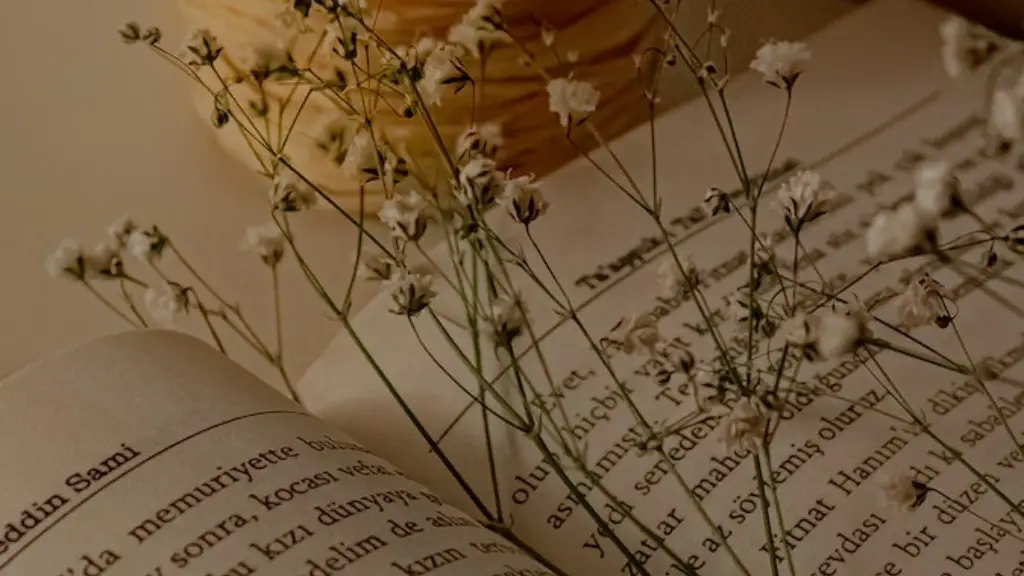Why Should Students Study Poetry?
Poetry is an important element of any student’s educational life. It explores the structures, subtleties and meanings of language. Through its associations with logic, beauty, knowledge and analysis, poetry allows students to express ideas in creatively succinct and thoughtful ways.
The study of poetry can help a student make better connections to the literature they are reading, understand the complexities of language, and develop their own skill in writing. According to Dr. Martha S. Nussbaum, an award-winning author and professor of Law and Ethics at the University of Chicago, “Studying poetry can enrich our minds, helping us to be more thoughtful readers and more emphatic human beings.”
The structure of a poetic form influences the meaning of the message it conveys. Students can learn to identify hidden symbols, metaphors and similes in a poem’s words to understand the deeper riddles and advice of the poem. As they become more familiar with a variety of poetic forms and their associated imagery and techniques, students can identify complex ideas and topics in other writings.
Poetry can also help build a student’s creative writing skills. By experimenting with poetic techniques, such as rhyme, meter and alliteration, students can explore the dynamics of language and gain insight into the many facets of expression. It is also an effective means for students to express themselves through identification and construing of their own emotions and experiences as expressed in their poems.
The established school of thought surrounding the mental health benefits of poetry when studied in school is evidence enough of it’s ability to influence not only knowledge, but also one’s mental stability. According to Dr. Barbara Moss, in “7 Great Benefits of Studying Poetry”, the social engagement of poetic study provides “a form of companionship with those of similar interests and ideas, making the solitary student feel an immediate camaraderie.” Through the study of poetry, a person can discuss and express ideas that speak to and promote understanding and acceptance.
Poetry is universal, age-old, timeless and culture-spanning, and it should co-exist in the modern student’s academic life. It engages students to think, create and interact, enabling them to discover their own personal voice and connection with the world around them.
The Benefits Of Poetry
The research is clear – studying poetry has tangible benefits to social, mental, and academic development. Poetry is a distinctly versatile medium – becoming more accessible than ever before thanks to platforms such as Instagram and Twitter. It has been used to heal wounds, both physical and psychological, allowing individuals to express emotions and tap into ancient human experiences in ways that can’t be measured by statistics.
Many experts believe that studying poetry is an important part of learning how to think. According to Dr. Alina Salgan, a Language and Literature teacher at St. John’s University, “Most experts agree that studying poetry helps hone critical thinking, analyze text closely and develop empathy – a major objective of education they believe.” Through the study of poetry in school, students can develop the necessary skills to think critically and empathetically, better enabling them to understand their own culture and the world around them.
Poetry explores the power of language, utilizing it to convey feelings, emotions and experiences in ways that quantitative studies can never reveal. It’s value, according to Dr. Nussbaum, “lies in its ability to express profound or complicated feelings in the simplest words. It can condense our thoughts down to their utmost clarity, allowing us to spend time focusing on the most important things in our lives.”
As well as exploring the power of language, poetry can also be used to bridge divides between cultures. According to Dr. Moss, “In an increasingly diverse and international society, poetry provides a way to unify. Learning how to interpret poetry from various languages and cultures helps appreciate the stories and histories of different societies and can often help bridge divide.”
In summary, the study of poetry provides students with the resources and skills to express their knowledge and creativity in a creative, thoughtful and empathetic way. It also encourages an appreciation of the diverse experiential histories that stem from multiple worlds of literary and cultural traditions.
The Poetic Revolution
Poetry is experiencing a resurgence in popularity amongst students, brought on by technology-driven social media networks and platforms such as Instagram, Wattpad and Twitter. These networks have opened up an online literary revolution to students who may have previously been intimidated by the study of poetry in their classrooms. By providing students with increased access to poetic resources, these platforms are granting students the power to explore and interpret poetry at their own pace and in their own ways.
Dr. Judith Starkston, in her article, “Poetry: Gateway to the Imagination” suggests that “poetry, more than any other type of writing, engages the imagination – inspiring its practitioners to capture their experiences in evocative and lyrical ways. When students are able to see the world through curious, creative perspectives, they stand to become better students and more creative problem solvers.”
The use of technology today provides students the power and flexibility to access and explore poetry in a wide range of ways. By allowing students to explore the many facets of poetic expression, such as voice, imagery, sound and form, in an interactive way, it emphasizes the value of poetry as both an intellectual and creative medium.
Furthermore, by making use of social networks and new technology, students are also engaging in valuable networking opportunities and “meeting” other students with similar interests. Through these interactions, students can foster relationships for literary and academic exploration and discuss their ideas with peers around the globe.
In summary, the emergence of social media networks has provided students with an empowering new pathway to explore and engage with the study of poetry. By providing increased access and a network of peers to engage with, these technological advances have promoted the crafting of new poetic interpretations and connections.
Exploring Poetry Online
Access to online resources has enabled students to experience and explore poetry in a range of ways never before possible. Through the use of video lectures, blogs and interactive discussion boards, students are now able to explore multiple approaches to the interpretation of poetry.
For example, blogs such as Poets.org and the Sea of Words podcast provide an interactive platform to discuss and learn about the craft of poetry and the different poetic forms and styles. With over 100,000 visitors each month, Poets.org is the preeminent online source for exploring contemporary and classical poetry.
In addition, there are many e-books and digital libraries that provide access to hundreds of thousands of poems from all over the world. This type of resource is particularly valuable in the classroom, as it encourages students to engage with poetry from different cultures and language backgrounds.
In summary, the emergence of online technologies has ushered in a new era of accessible and interactive ways to explore poetry. Through blogs, podcasts and online libraries students can explore the literary and creative value of poetry on their own terms.
Poetry As a Reflection Of Society
In addition to its literary and creative value, poetry is also an integral part of understanding one’s own culture and the cultures of others. It is through poetry that we reflect upon our society and the shared experiences of our human existence.
It is through the shared experiences of authors that the reader is exposed to the emotions, activities and traditions that shape cultures. In his paper, “Poetry and Society”, Dr. Paul Hopkins suggests that “poetry serves as a reflection of our attitudes and beliefs, providing a window into how we think and feel. It serves as an emotional reflection of our values, ideologies and communal concerns.”
Finally, poetry serves as a valuable tool for discussions regarding politics, justice and equality. As suggested by Dr. Christopher Myers in his essay entitled “Poetry and Politics”, it “can help us to enter into dialogue with each other and think on a deeper level about our political realities, encouraging us to consider alternative perspectives and work towards mutual understanding.”
In summary, poetry can be seen as a reflection of sentiment and culture. In providing unique interpretations of the shared experiences of our human existence, it can help to connect us to each other and promote understanding and empathy concerning social, political and cultural issues.
Conclusion
In conclusion, poetry has been a powerful tool of expression, representation and understanding for centuries. Its ability to capture and express the beauty of language, emotions, cultures and experiences has not only served as an intellectual pursuit, but also as a therapeutic, creative and inspirational medium.





